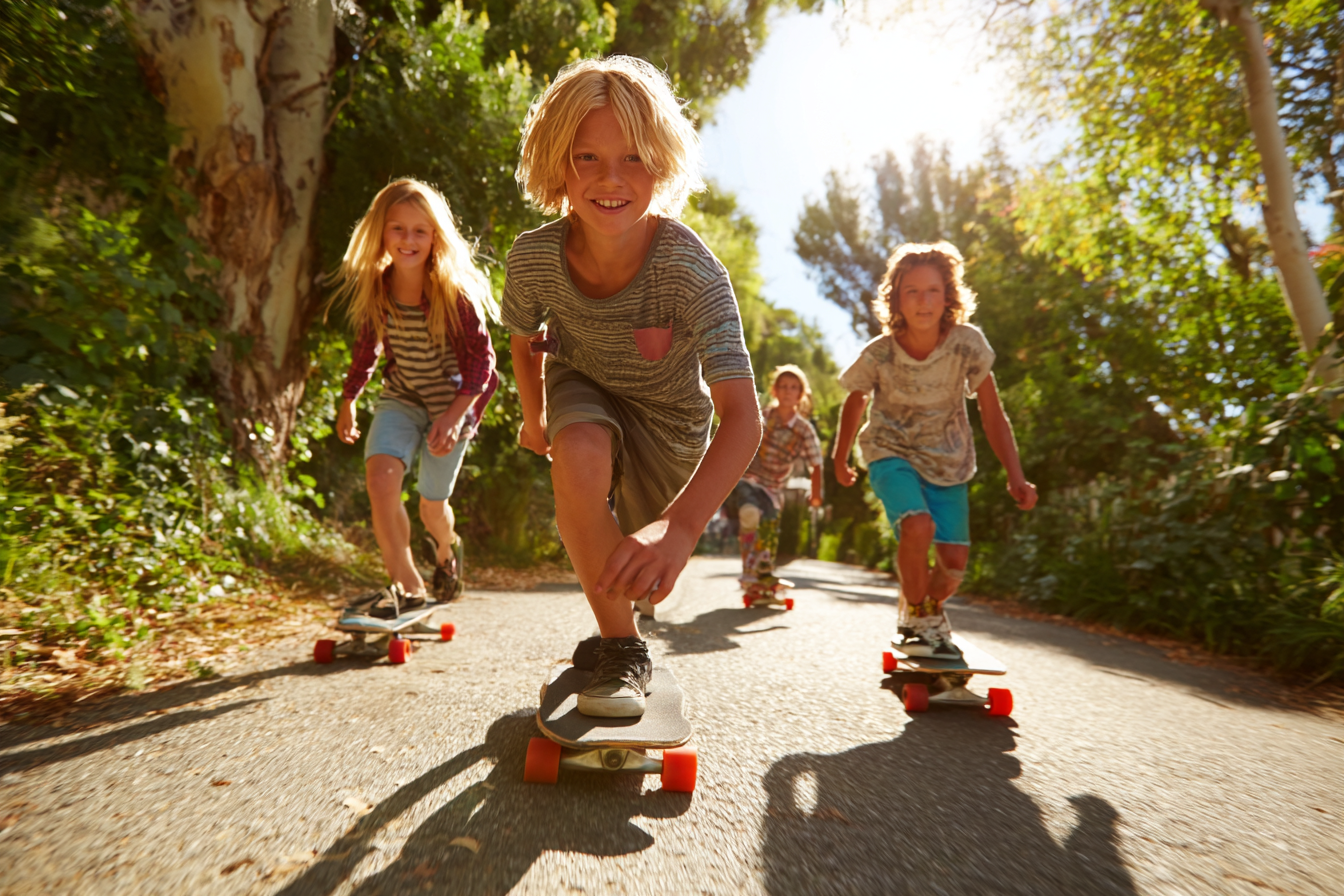Skateboarding is often seen as a thrilling pastime full of tricks, creativity, and fun. But beyond the excitement, it serves as an excellent form of exercise with numerous health benefits for kids. From building physical strength to boosting mental well-being, skateboarding offers a unique blend of activity that helps children develop holistically. Let’s dive into how skateboarding can be a powerful contributor to children’s growth and health, making it much more than just play.
Skateboarding as a Form of Exercise
When you think of exercise for kids, traditional sports like soccer or swimming might come to mind first. However, skateboarding provides a dynamic and engaging way to stay active. Unlike some sports that heavily rely on running or repetitive motions, skateboarding challenges the body in varied ways. It requires constant movement, balance adjustments, and coordination, engaging multiple muscle groups simultaneously. Plus, since it feels more like playing than exercising, kids are more likely to enjoy it and stick with it regularly.
Physical Health Benefits: Strength, Balance, and Coordination
One of the most significant benefits of skateboarding for children is the improvement of physical health. Skateboarding is great for developing strength, especially in the legs and core. Pushing the skateboard forward builds leg muscles, while maintaining balance requires strong abdominal and back muscles. This comprehensive engagement helps kids develop better muscle tone and endurance.
Balance is another key skill honed through skateboarding. Standing and performing tricks on a moving board demands impeccable balance and control. Over time, children become more stable and confident in their movements, which translates to better posture and fewer falls in everyday activities.
Coordination is enhanced as well. Skateboarding asks kids to simultaneously control their movements, foot placement, and visual attention. This multi-faceted coordination improves motor skills and hand-eye coordination, which can benefit other sports and physical activities too.
Mental Benefits: Confidence, Focus, and Stress Relief
Skateboarding does wonders for mental health, too. Successfully landing a trick or mastering a new skill can give kids a tremendous confidence boost. This sense of accomplishment helps build self-esteem and encourages a growth mindset — the belief that skills improve with practice and effort.
Focus is enhanced through skateboarding as well. The sport requires attention to detail and concentration to maintain balance and execute maneuvers. This mental discipline can help children sharpen their focus in school and other areas of life.
Additionally, skateboarding acts as a natural stress reliever. Being outdoors, actively moving, and engaging in an enjoyable activity releases endorphins and reduces anxiety. It offers a constructive outlet for emotional energy, helping kids feel relaxed and happy.
Social Skills and Community Building
Skateboarding isn’t just a solo activity. It often brings kids together, creating opportunities for social interaction and community building. Skateparks become hubs where children share tips, cheer each other on, and make friends. The inclusive and supportive atmosphere encourages communication and cooperation.
Engaging with peers in skateboarding helps kids practice teamwork and respect, as well as learning how to handle competition and setbacks in a healthy way. These social skills are vital for overall development and building meaningful relationships.
How Skateboarding Promotes Creativity
Aside from physical and social benefits, skateboarding nurtures creativity. The sport isn’t confined to exactly following rules or routines. Instead, children can express themselves through unique tricks, personalized style, and inventive ways to use their environment. Every park, street corner, or ramp can become a canvas for creative movement.
This creative expression encourages problem-solving skills as kids figure out new ways to approach obstacles or improve tricks. It also fosters a sense of identity and individuality, which is important for growing kids to develop their own voice and confidence.
Encouraging Regular Skateboarding for Wellbeing
To maximize the benefits, encouraging regular skateboarding is key. Like any physical activity, consistency is what builds strength, skill, and long-term health advantages. Parents and caregivers can support children by providing safe equipment, access to local skateparks, and a positive environment.
Setting realistic goals, celebrating progress, and even joining in the fun can motivate kids to keep skating. Whether it’s daily practice or a few times a week, regular sessions create habits that contribute to sustained physical fitness and mental wellness.
Safety Reminders While Getting Active
Safety should always be a priority when children take up skateboarding. Wearing proper gear like helmets, knee pads, elbow pads, and wrist guards helps prevent injuries. Younger or beginner skaters especially benefit from protective equipment as they learn balance and control.
Choosing safe, designated skate areas away from traffic, encouraging warm-ups before skating, and teaching kids how to fall safely also reduce risk. Supervising young children during their sessions and educating them about safety rules will make skateboarding a fun and safe activity.
Real-Life Stories of Health Benefits in Kids
Many parents have witnessed the transformation skateboarding brings to their children. For instance, some kids who were initially shy or inactive gained newfound confidence and became more social through skateboarding. Others improved their posture and overcame coordination difficulties thanks to the demands of the sport.
One inspiring story involves a young boy who struggled with anxiety. After beginning skateboarding, his parents noticed he was calmer, more focused, and eager to engage with friends. The physical activity combined with creative freedom gave him a positive channel for expression and stress relief.
These real-life examples highlight how skateboarding offers much more than entertainment – it can be a catalyst for meaningful health improvements and personal growth in children.
Skateboarding as a Holistic Growth Activity
Skateboarding for kids encapsulates a holistic approach to health and development. It combines physical exercise, mental challenges, social interaction, and creative expression into one engaging activity. This blend is why skateboarding resonates with so many children, encouraging them to grow stronger, more confident, and more connected both within themselves and with others.
By embracing skateboarding as more than just a recreational activity, parents, educators, and communities can support children in ways that nurture their whole wellbeing. Encouraging kids to hop on a skateboard opens doors to lifelong health benefits and joyful growth beyond what traditional exercise alone might offer.







